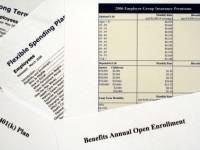
As we previously detailed, a shareholder’s request for corporate books and records can raise competing concerns for the company and its directors. On the one hand, shareholders have a legal right under Section 220 to seek company records, and have been repeatedly encouraged by Delaware courts to exercise that right. On the other hand, because Section 220 requests are often a precursor to litigation – and because even innocuous documents can sometimes be used to bolster an otherwise baseless lawsuit – fiduciaries must ensure their response protects shareholder interests as a whole.
A string of recent Delaware decisions have added a new layer of complexity to these concerns. Going forward, Section 220 requests will likely become more common, and will potentially carry a larger downside for companies that fail to properly respond.
First, Delaware courts are increasingly insistent that shareholders seek corporate records before filing suit. In fact, the Delaware Court of Chancery recently went so far as to hold that if a shareholder fails to seek books and records before filing a derivative complaint, the court can assume that shareholder is unable to “provide adequate representation for the corporation.” That decision was later overturned by the Delaware Supreme Court, but by acknowledging “the trial court’s concerns,” the Supreme Court yet again reiterated its expectation that shareholders should request company records as a matter of first course.
By the same token, Delaware courts have now firmly established that a shareholder can request books and records in almost any circumstance, including:
- Before a litigation demand is made,
- To determine why a litigation demand was refused,
- Before the filing of a complaint,
- During the pendency of another shareholder action pursuing the identical claims, and, significantly,
- After a complaint is dismissed, in order to successfully replead.
Because shareholders (and their attorneys) can seek corporate records from so many angles, companies experiencing a stock drop or bad press can now find themselves facing multiple Section 220 requests while simultaneously having to deal with multiple shareholder litigation demands and lawsuits. Mapping out the proper response through such a thicket of competing concerns can present very difficult challenges for any fiduciary.
That is particularly true given the potential downsides for failing to respond properly. Significantly, the Delaware Court of Chancery recently held that where a company fails to produce certain documents in response to a Section 220 books and records action, the court can draw negative conclusions from their absence. In other words, while many companies worry about producing too many documents for fear they will be used against them in litigation, producing too few documents – or not producing specific documents the court feels should have been produced — might now be used against them in litigation.
As with any body of law, the rules governing books and records demand will continue to evolve, particularly as more shareholder actions are funneled into Delaware. Companies and their directors and officers should thus move cautiously when faced with a Section 220 demand be sure that both shareholder and company concerns are considered before any production occurs.

